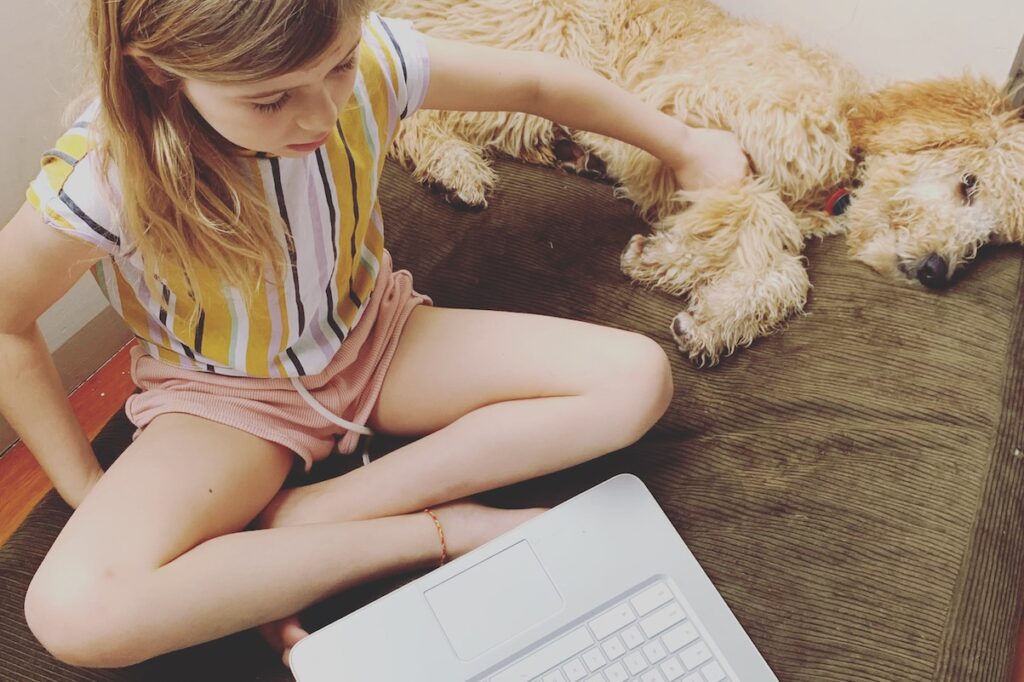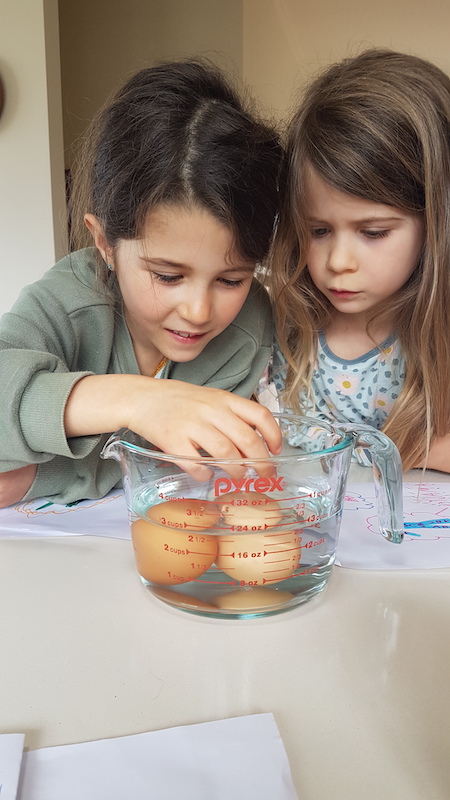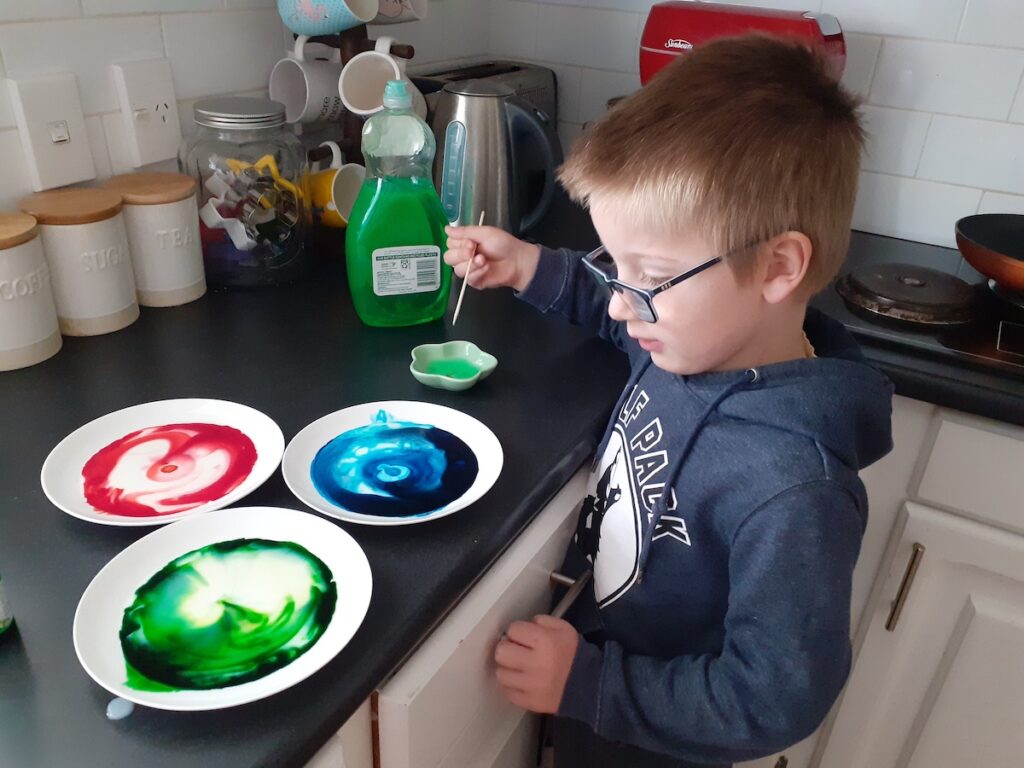What's New
8 September, 2021
Peninsula schools adapt to life in lockdown:
With children stuck at home, Janetta Mackay outlines school’s remote learning options

Devonport peninsula schools are taking a flexible approach to learning under lockdown, with a range of routines for students.
While teachers are generally on standby for advice between usual bell times, often the hours spent in lessons each day have been curtailed to allow flexibility for families grappling with the challenges of learning and working from home.
This approach is being seen across the age groups, allowing younger children time to play and older children time to chill and connect with friends. It recognises the need to help students stay positive and reduce stress in what is a second disrupted school year.
NCEA exams have been put back by two weeks. They will run from 22 November to 14 December. Extra credits have been extend- ed to Auckland students to help make up for disruptions.
Takapuna Grammar School (TGS) says it is planning for various contingencies around practice examinations and time for portfolio and technical and practical work, depending on how long lockdown lasts.
Principal Mary Nixon said students had engaged well with a quick switch to online learning. “Parents and students say learning is going well this time, but they wish they were at school with their teachers and friends.”
TGS teachers had set remote programmes that students could work on routinely as if they were at school, while being flexible enough so families could work with a different schedule as required.
Staff and student leaders were motivating and reassuring others and communication was helping “so everyone knows their part in the job we are doing together.” Existing good bonds within the school and with parents made this much easier.
Belmont Intermediate School (BIS) has distance learning with teachers and classmates from 8.45am to noon.
Students are encouraged to use their afternoons for “well-being, active pursuits and family time,” says acting principal Claire Janes.
Hauraki School’s day runs from 9am to 3pm, with teachers available throughout this time to provide support and feedback to students on their work.Teacher aides and specialist teachers are also on hand for those who benefit from extra help.
Principal Clarinda Franklin says: “While we encourage children to engage with the learning provided, we know how challenging it can be for some families and so our message to parents is just do what you can. We need to be mindful of the bigger picture at this tricky time.”
St Leo’s Catholic School also has its teachers available from 9am to 3pm, but says they often field messages outside these times.
Stanley Bay School surveyed its community after the last lockdowns to find out how the school could improve what it did. Principal Lucy Naylor said it settled on a structured home-learning plan, aiming to deliver high-quality teaching and learning rather than just “busy work”. The day begins with the class roll and news. Teachers share what is coming up, then they teach reading, writing and maths groups. This runs from 9am to noon each day.
In the afternoon, students have independent learning. Teacher support is available online for this work, which students bring to class the next day.
Devonport Primary School students each attend one daily Zoom session with a group of classmates. Work is sent out daily. Daily videos explain the learning tasks.
Principal Beverley Booth says: “We know that everyone has their own set of circumstances during lockdowns and our programme is designed to be flexible for parents and this helps to make sure that everyone can take part.”
Vauxhall School says it is up to each whanau to engage with its distance-learning programme at a level that suits them.
Bayswater School’s learning activities are considered suggestions. Families can work to their own timetable and expectations. Sharing of both set learning as well as other activities is encouraged, says acting principal Marianne Coldham. “In this way, children’s own personal passions are celebrated and valued.” An example was a child who had decided he wanted to learn how to do quadratic equations. After teaching himself online, he had been interacting with a teacher to consolidate his understanding.

Food for thought… Willa (Year 2) and Marnie Shapiro (Year 1) learn about Archimedes Principle
Bastion Bowen (Year 1) follows online instructions to do a colour experiment
Students feel loss of axed sports and cultural events
The loss of winter sport and other events students were looking forward to is one of the hardest impacts of lockdown.
Principals on the peninsula told the Flagstaff the switch to learning from home had generally gone smoothly, but it was student morale that took more managing. Communication was key to keeping pupils on track.
Most Takapuna Grammar School students had missed out on events they had prepared for and were excited about, said principal Mary Nixon. This was hugely disappointing. For Year 13s, it was their last opportunity to excel at a national level. “Our students have been exceptionally resilient in understanding and accepting these losses are necessary in the current situation, but they are devastated.”
Primary schools were also hit hard. “The way Covid affects sport is perhaps what many students notice most,” said Hauraki School principal Clarinda Franklin. “But we’re grateful to have got most of the games behind us compared to last year.”
For the juniors, a popular inter-school rippa-and-tackle rugby competition could not proceed late last month.
Intermediate students looking forward to the AIMS Games in Tauranga had this cancelled for the second year in a row, a fate also suffered by secondary sports teams aiming for national winter tournaments.
North Harbour Netball and North Harbour Rugby called off their seasons with just a few games to play, with other winter codes also again accepting there would not be time to wrap up seasons before the end of term 3 on 1 October.
Arts and cultural events have also been lost, from group exhibitions, a dance festival and speech contests to the annual primary-school Book Battle and a sustainability challenge.
The national Big Sing final, involving choirs from Takapuna Grammar and both Westlake schools has also fallen by the wayside.
Schools’ own events, including trips and fundraisers, have also been hit.
“If there are any events that can be postponed, we shall endeavour to plan accordingly,” said Belmont Intermediate’s acting principal Claire Janes.
But Devonport Primary School principal Beverley Booth says with Term 4 always busy, carrying over events is tricky. “A huge disappointment” was the cancellation of a ski competition that a school team entered.
Vauxhall will do what it can to postpone or run its own alternative events, says principal Gary Lawrence, but is wary of putting extra pressure on children when they return to school.
“We know that when they come back it is best to have a slow steady transition focused on friendships, connection and well-being. If we pack the days full of catch-up events, it runs the risk of creating too much pressure for some children”
Stanley Bay School principal Lucy Naylor says that while students are getting used to last-minute changes, that doesn’t stop them being disappointed. St Leo’s principal Maureen Harris echoes that, saying a lot of effort goes into readying for events.
That said, lockdown brings at least one upside. “One teacher pointed out that she has seen many families out exercising and enjoying family time, which they would not have normally had time for,” Harris observed.

Please consider supporting The Devonport Flagstaff by clicking here:
